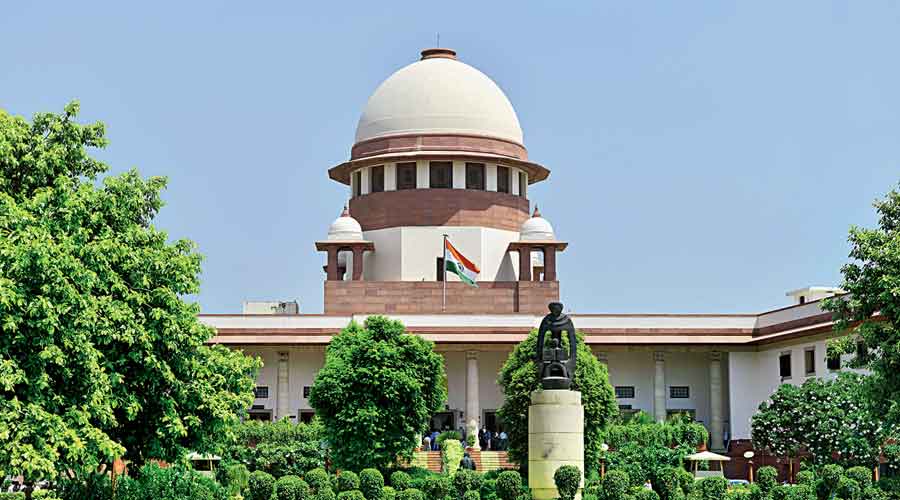The merit-versus-reservation debate has surfaced again. Twenty Indian Institutes of Management (IIMs), where 90 per cent of the faculty belongs to the general category, have requested the government to exempt them from reserving positions in the teaching staff for members of Scheduled Castes (SC), Scheduled Tribes (ST), Other Backward Classes (OBC) and Economically Weaker Sections (EWS).
This request follows the directive issued to these elite public institutions by the central government a month ago to provide reservations in faculty positions for SC, ST, OBC and EWS candidates. They are required to provide 15 per cent reservations in teaching posts for SCs, 7.5 per cent for STs, 27 per cent for OBCs and 10 per cent for the EWS.
The IIMs had earlier ducked the demands for reservation by citing a letter of the Department of Personnel and Training from the 1970s which stated that scientific and technical posts were exempt from reservation. IIMs have also cited a 1975 order by the Ministry of Education (now the Ministry of Human Resource Development) to IIM Ahmedabad, in which the institute was asked not to implement caste-based reservation.
According to information obtained under RTI in 2016 and 2017, only 5 out of 233 faculty members across 6 IIMs – Indore, Kozhikode, Rohtak, Raipur, Ranchi, Kashipur – were OBCs. In November 2019, in reply to a question in Parliament, the government said that there are only 11 faculty members belonging to the Scheduled Caste (SC) and Scheduled Tribe (ST) categories in the country’s 20 IIMs. Among the top three IIMs — Ahmedabad, Calcutta and Bangalore — only the IIM Bangalore faculty has one member from reserved categories. Two of the teaching staff each in the IIMs of Kozhikode, Shillong and Jammu are from the SC and ST communities. The faculties of IIMs in Sirmaur, Rohtak, Udaipur and Lucknow have a member each from reserved categories.
Following this admission, the Ministry of Human Resource Development issued an order that “supersedes all previous orders/notifications/communication” in the matter of reservation. This order asked the IIMs prepare reservation rosters and make all future appointments of teachers in accordance with them.
Prior to the above order of HRD, the argument for not implementation of reservation in IIMs was based on Article 335 of the Constitution, which states that:
“The claims of the members of the Scheduled Castes and the Scheduled Tribes shall be taken into consideration, consistently with the maintenance of efficiency of administration, in the making of appointments to services and posts in connection with the affairs of the Union or of a State.”
This time around, the argument being peddled is that reservation could impact the ability of the IIMs to compete globally. This resistance to implement reservation is creating a diversity deficit in IIMs, which, as studies have shown, limits the effectiveness of any organization.

Deepak Malghan, an associate professor of public policy at IIM-Bangalore, and researcher Siddharth Joshi had published a paper in 2017 on social inclusion in the elite management institutions. The paper argues that diversity deficits manifests in teacher-student interactions. Some teachers hold a bias against students from the reserved category and at times it comes out very strongly. They subscribe to the notion that reserved-category students are non-meritorious whereas non-reserved are meritorious.
IIMs were established in the early 1960s to meet the demand of suitable personnel for the management of large number of enterprises coming up both in the public and private sectors. But today, their lack of recognition of diversity has meant they have not been able to fulfil their mandate.
Kavita Meena in a 2015 study says, “each diversity dimension is a factor of discrimination and impacts the decisions in the organization. These dimensions impact the decisions at various levels such as recruitment, promotions, transfers, work-life balance, group communication, team work, social acceptance by colleagues etc.” Hence, the need for diversity in the staff room and classroom of the business schools to help do away with these biases before the management students launch into their careers.
Surinder S. Jodhka and Katherine Newman in a 2007 study, presents the results of their qualitative interview based study of human resource managers, focusing on hiring practices. Their research suggests that managers bring to the hiring process a set of stereotypes that make it difficult for the “low-caste” applicants to be considered for the advertised positions.
Just how far behind are Indian business schools in recognizing the importance of diversity? Twenty-four years ago, Harvard Business Review published a paper titled “Making Differences Matter: A New Paradigm for Managing Diversity”. Authors David A. Thomas and Robin J. Ely wrote: “… today managers are voicing a second notion as well. A more diverse workforce, they say, will increase organizational effectiveness. It will lift morale, bring greater access to new segments of the marketplace, and enhance productivity. In short, they claim, diversity will be good for business.” The authors go on to “present a new paradigm for understanding – and leveraging – diversity.”
Contrary to general perception, affirmative action is not, as a principle, a deviation from the logic of meritocracy. Ideally, it is a means of identifying talent from a larger social pool. But if the educational leadership refuses to recognize this reality and continues to talk of meritocracy without inclusion of socially discriminated sections, it merely safeguards and perpetuates their narrow interests and privileges in the modern knowledge economy at the cost of the progress of society as a whole.
Copy-editing: Goldy/Anil
Forward Press also publishes books on Bahujan issues. Forward Press Books sheds light on the widespread problems as well as the finer aspects of the Bahujan (Dalit, OBC, Adivasi, Nomadic, Pasmanda) community’s literature, culture, society and culture. Contact us for a list of FP Books’ titles and to order. Mobile: +919968527911, Email: info@forwardmagazine.in).






